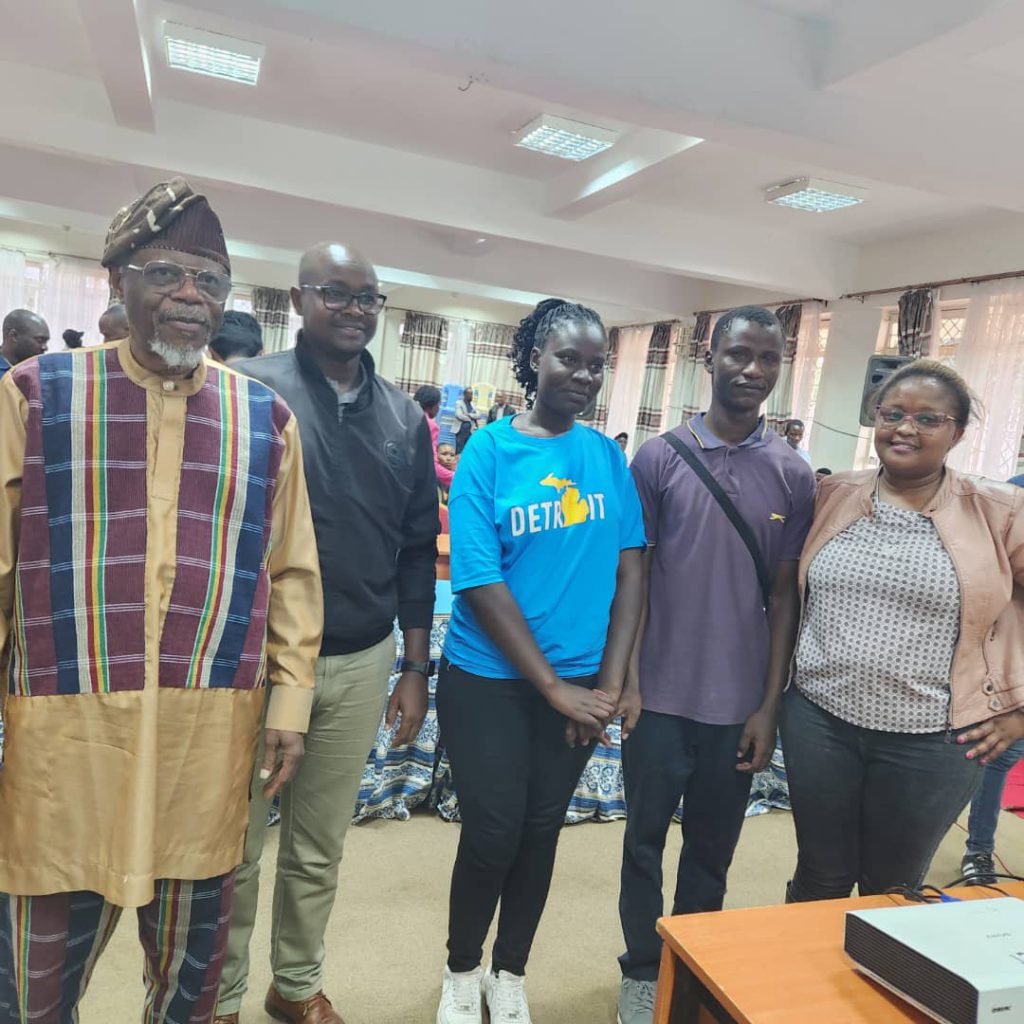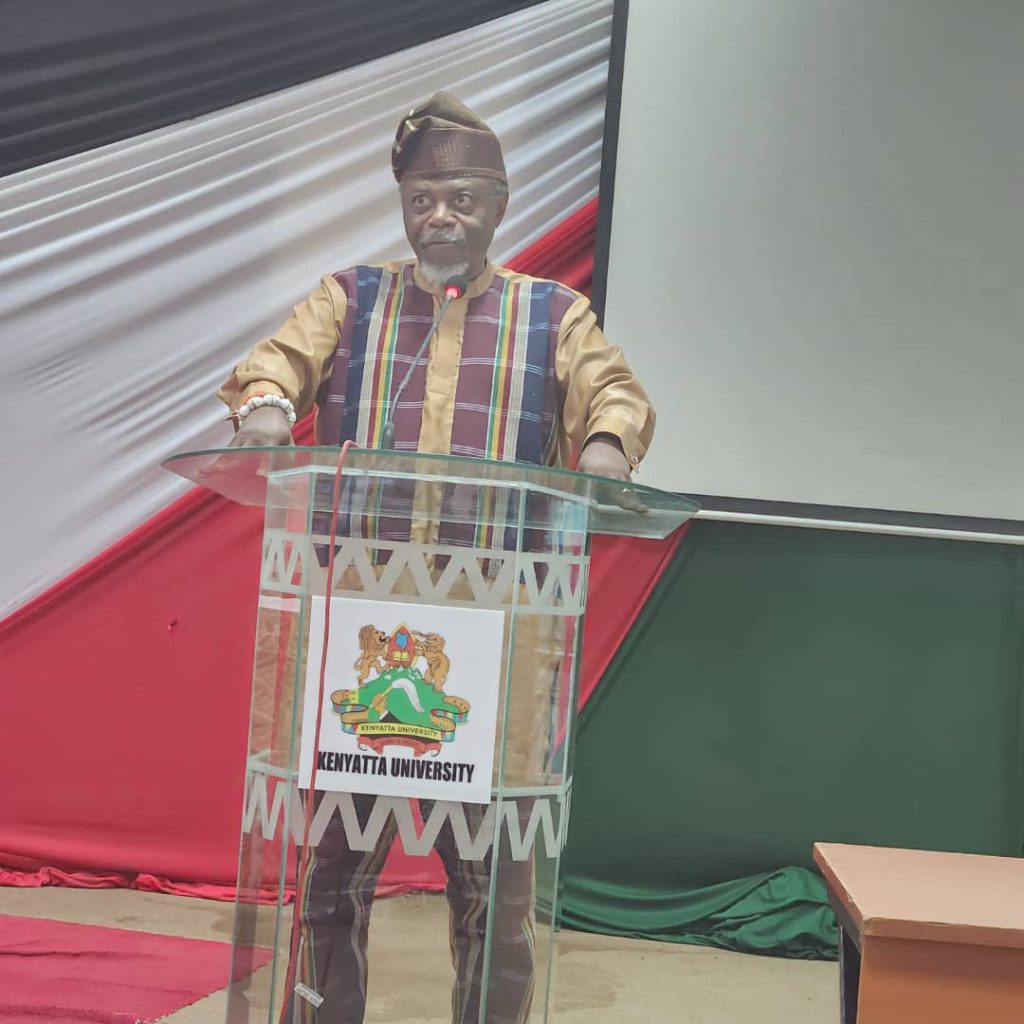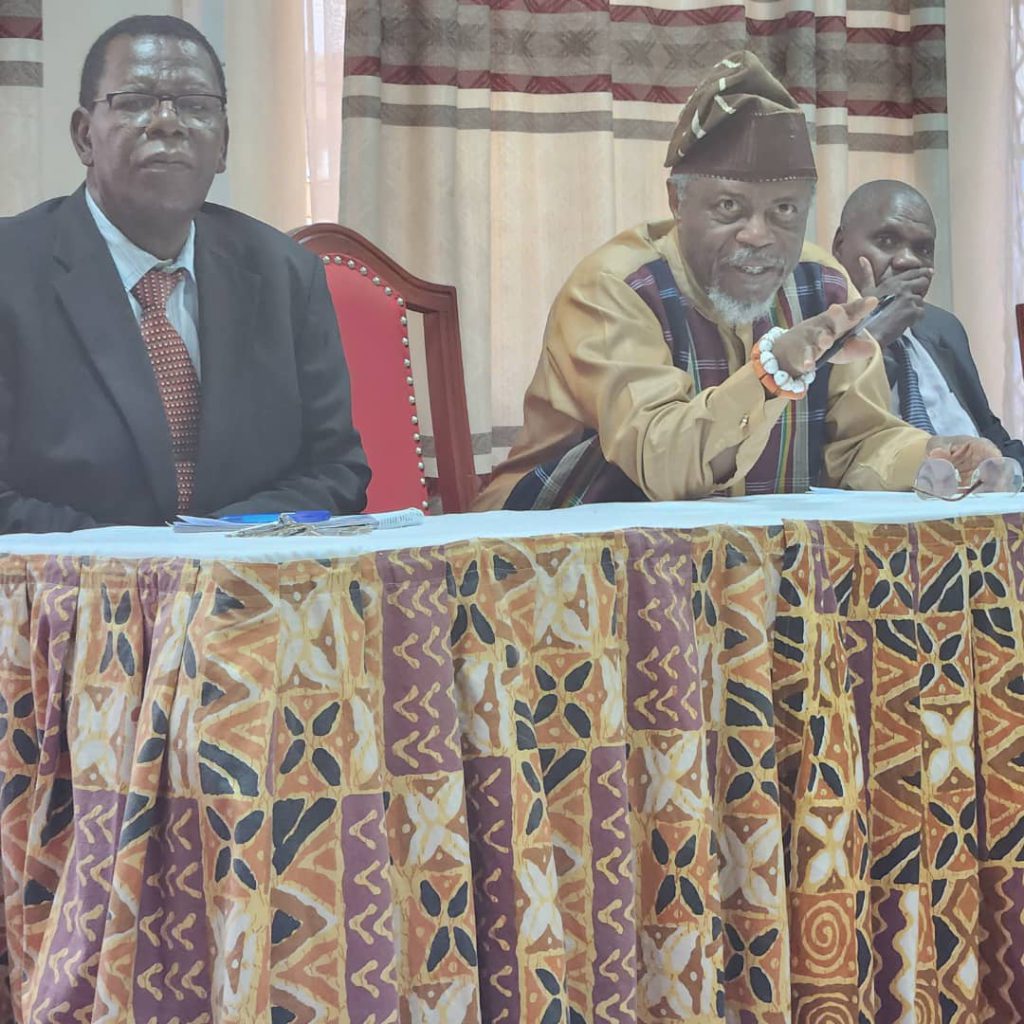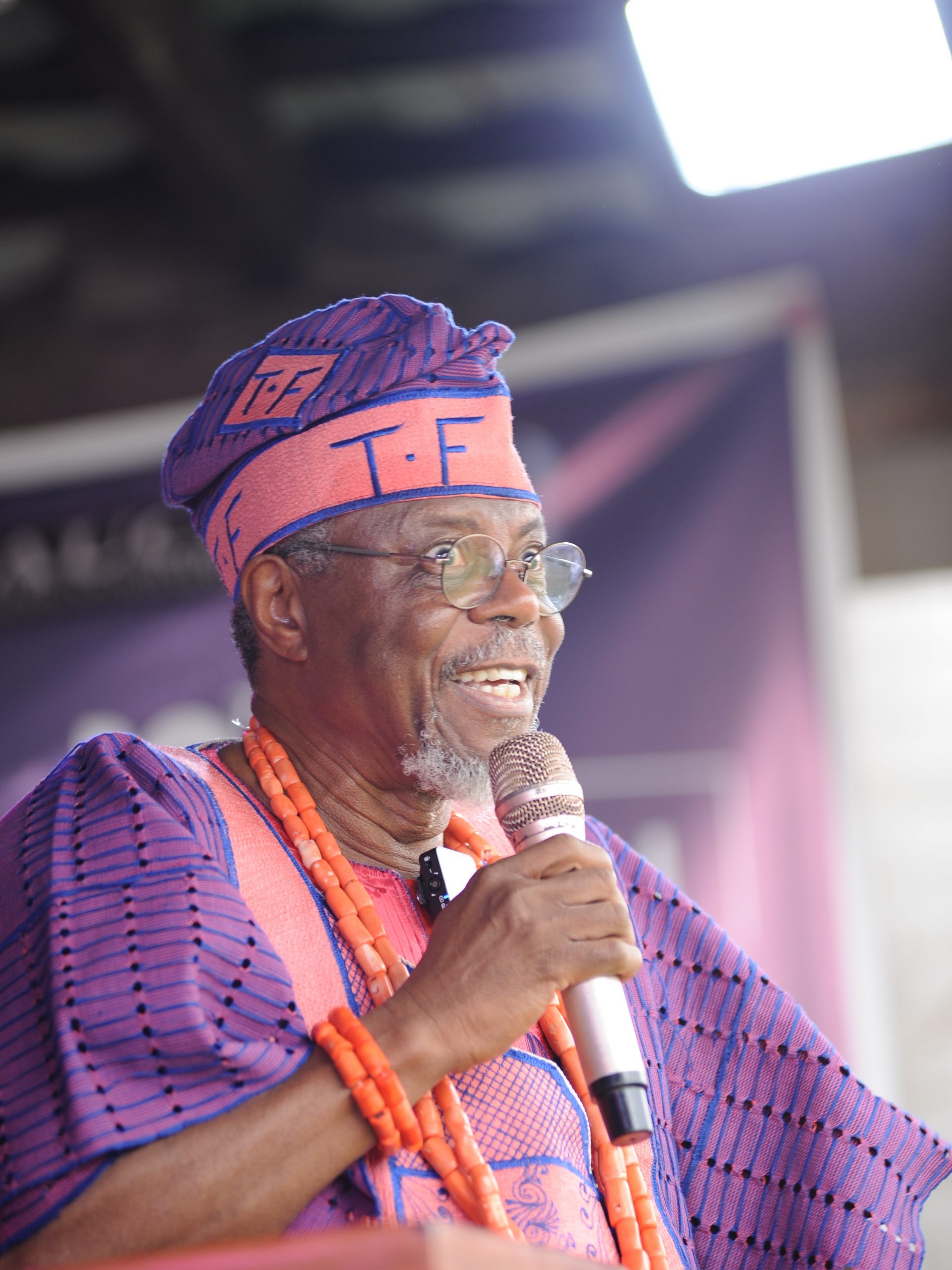By Toyin Falola
It is a pleasure to address students and faculty of Kenyatta University, Nairobi, on May 7, 2024.
Africa’s journey towards democratization and state security is a complex one, with a long depth of historical lessons, current challenges, and future aspirations that reflect the diversity of its nations. The journey towards democratization in Africa has been a compelling mix of aspirations for freedom and the harsh realities of political transitions, where the remnants of colonial legacies intertwine with the vibrant dreams of a democratic future. Throughout the mid-20th century, Africa embarked on a complex journey towards democratization, characterized by the initial excitement of gaining independence from colonial powers and the subsequent challenges of establishing effective governance and stability.
The surge of independence that spread across the continent during the 1950s and 1960s carried with it the promise of democratic governance. Nevertheless, the absence of well-established democratic institutions, along with ethnic divisions and economic difficulties, frequently resulted in the dominance of authoritarian regimes instead of the emergence of thriving democracies. Many countries in Africa experienced a shift towards military coups and one-party systems, which unfortunately hindered the democratic aspirations of numerous citizens.
In the late 20th century, a notable change occurred when countries like Ghana and Botswana started implementing reforms to promote political openness and establish multiparty systems. These changes were not without their challenges, but they represented a significant shift towards democratic governance.
The process of democratization, although faced with various obstacles, has continued to progress into the 21st century, demonstrating both achievements and difficulties.
However, the relationship between democratization and state security is a complex story. On the one hand, the shift towards democracy is anticipated to improve governance and regional stability. Democratic regimes inherently prioritize transparency, accountability, and the rule of law, which contribute to these positive outcomes. These principles promote the establishment of stable and secure environments, aligning with the idea that democracies are less prone to external conflicts and are skilled at peacefully resolving internal conflicts.

However, the transition to democracy can also bring about new security challenges for nations. Periods of political liberalization can sometimes result in instability, as existing power structures may resist change, and the introduction of new political freedoms can potentially fuel ethnic, religious, or regional tensions. The case of Kenya, for example, highlights the convoluted equilibrium needed in the democratization process. The post-election violence in 2007-2008 highlighted the risks associated with political liberalization, as it led to considerable instability and posed a challenge to the progress of democracy.
A comprehensive examination is required to fully understand the complex effects of democratization on state security, taking into account the potential advantages as well as the inherent dangers. It requires a thorough analysis of how shifts towards democratic governance impact the mechanisms of state security. In certain instances, the process of democratization has strengthened the institutions tasked with upholding law and order, leading to a notable decrease in political violence and insurgencies. However, in other cases, hasty or poorly handled democratization processes have resulted in political instability, making nations susceptible to coups, civil wars, and other forms of conflict. The late 20th century witnessed a significant shift in Africa as the demand for democratic systems gained traction. This movement was fueled by a combination of internal advocacy and external pressures, such as the conditionalities attached to international aid from Western countries.
During this period, there were significant examples of countries like Benin and Zambia that successfully transitioned to multiparty democracies through national conferences and constitutional reforms. These transitions, although not without their fair share of difficulties, became shining examples for other African nations, showcasing the possibilities of peaceful transformation and the creation of more inclusive political structures. Nevertheless, the democratization process in Africa has been significantly influenced by the enduring effects of colonial rule, which persistently shape the political landscape.

European colonialism had a profound impact on African states, not only reshaping their geographical boundaries but also laying the groundwork for the enduring political and economic structures we see today. Colonial powers haphazardly combined various ethnic groups into unified nations, which frequently sparked ethnic tensions after gaining independence. In addition, the policy of divide and rule had a detrimental effect on traditional governance structures, leading to a breakdown in trust and fostering competition among different ethnic groups. This has made it more challenging to establish a unified national identity and a cohesive democratic process.
The effect of international interventions on Africa’s democratization has been both positive and negative. Various organizations like the United Nations and the African Union, along with influential nations from the West and China, have been instrumental in promoting democratic transitions. They have been actively engaged in a variety of efforts, including diplomatic pressure, economic aid, and election monitoring, all with the goal of fostering fair and democratic processes. For example, international aid and sanctions played a vital role in assisting democratic transitions in countries such as Liberia and Sierra Leone. These nations successfully emerged from long-lasting civil wars and were able to establish democratic governments.
However, international interventions have occasionally resulted in unforeseen outcomes, as they have supported autocratic regimes due to strategic or economic interests, especially during the Cold War era. In recent times, the participation of external actors in Libya’s civil strife after 2011 has brought about additional layers of complexity to the country’s efforts towards democratization. This serves as an example of how international involvement can sometimes worsen local conflicts instead of improving them.
During various external factors, the crucial connection between democratization and state security remains a central theme. The process of democratization naturally entails the reorganization of state institutions, including those in charge of security, to conform to democratic standards. This restructuring is often met with opposition, especially from certain factions within the military or security forces who may be adversely affected by the transition to democratic governance.
The democratization of security forces is a crucial part of the transition. It involves not only removing political influences from these forces but also ensuring that they adhere to human rights and accountability standards. South Africa post-apartheid provides a remarkable illustration of the successful integration of previously segregated and often rival security forces into a cohesive national entity that upholds democratic norms.

Nevertheless, the path ahead is filled with obstacles. Security sector reforms are crucial yet intricate, necessitating not only the reorganization of institutions but also a fundamental change in their culture. The opposition that arises can take on various forms, ranging from subtle acts of sabotage to more direct forms of opposition, like coups, that have the potential to disrupt the process of democratization.
In the modern era of democratization in Africa, the digital revolution and the widespread impact of social media have brought about new dynamics that present both challenges and opportunities for democratic processes. The emergence of digital platforms has revolutionized the way information is shared, empowering individuals to participate in political discussions without relying on traditional intermediaries. This transformation has become quite apparent in the way social movements and protests have been coordinated, from the Arab Spring to more recent pro-democracy protests across the continent. Platforms such as Twitter, Facebook, and WhatsApp have greatly expanded the reach of democratic discourse and empowered citizens to demand accountability from their governments.
Nevertheless, this digital empowerment presents its own unique set of challenges. The dissemination of false information and the exploitation of social media for political purposes can have a detrimental impact on the integrity of democratic participation and skew public sentiment. In addition, the issue of the digital divide persists, with uneven access to internet services in urban and rural areas. This could potentially exclude a significant portion of the population from fully participating in the digital democracy.
Economic factors are also crucial in shaping the democratization process. Ensuring the sustainability of democratic institutions relies heavily on economic stability and growth. Successful economies often contribute to the development of advanced educational systems, improved healthcare services, and strong civic institutions, all of which are crucial for fostering a thriving democracy. On the other hand, economic disparities and significant poverty can worsen social divisions and result in political instability. Marginalized groups may feel excluded from the democratic process and turn to violence as a means of political expression.
The importance of regional and continental bodies in Africa has gained significant recognition for their crucial role in supporting democratization efforts. Organizations such as the African Union (AU) and the Economic Community of West African States (ECOWAS) have been instrumental in promoting democratic norms and principles among member states. Their contributions to election monitoring, conflict mediation, and policy advocacy have played a vital role in promoting fair elections and effectively handling political crises. For example, the intervention by ECOWAS in The Gambia in 2017, which successfully facilitated a peaceful transition of power, demonstrates the valuable contribution that regional organizations can make in safeguarding democratic principles.
Considering the future, the potential for democratization in Africa relies on the continent’s adeptness in managing a diverse range of internal and external influences. The global geopolitical environment, international economic trends, and domestic socio-political dynamics will influence the trajectory of democratization. Policymakers, civic leaders, and security organizations should embrace flexible strategies that can effectively respond to evolving circumstances. This involves improving the abilities of security forces to function within democratic systems, advocating for inclusive governance that tackles economic and social disparities, and utilizing technology to boost civic participation and government openness.
Lastly, achieving democratization and enhanced state security in Africa is an ongoing endeavour that demands unwavering dedication, astute foresight, and an all-encompassing approach. By tackling the complex issues that arise from internal divisions, external influences, and the ever-changing digital landscape, African nations have the potential to create stable, secure, and democratic societies. The insights gained from both achievements and challenges along this path will be vital in shaping a democratic future that genuinely represents the hopes and varied perspectives of its citizens.


